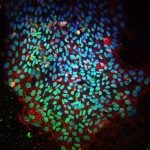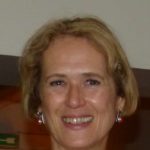Lien vers Pubmed [PMID] – 27389857
Lien DOI – 10.1002/bies.201600064
Bioessays 2016 09; 38(9): 857-62
Skeletal muscle stem cells or satellite cells are responsible for muscle regeneration in the adult. Although satellite cells are highly resistant to stress, and display greater capacity to repair molecular damage than the committed progeny, their regenerative potential declines with age. During ageing, satellite cells switch to a state of permanent cell cycle arrest or senescence which prevents their activation. A recent study reveals that the senescence of satellite cell relies on defective autophagy, the quality control mechanism that degrades damaged proteins and organelles. Molecular damage is generated by oxidative stress that also promotes epigenetic changes that activate the expression of master genes, in a double-hit mechanism that ensures senescence. Importantly, genetic, and pharmacological correction of defective autophagy reverses satellite cell senescence and restores muscle regeneration in geriatric mice, with perspectives of modulating age-related functional decline of muscle. This study provides new clues to understand stem cell and organismal ageing.

